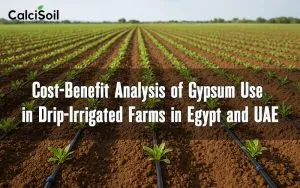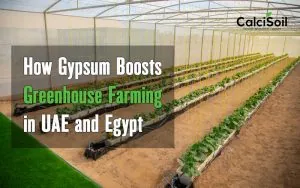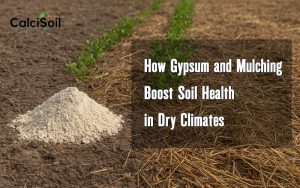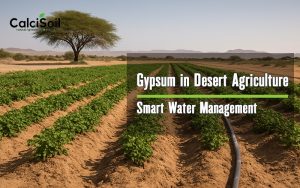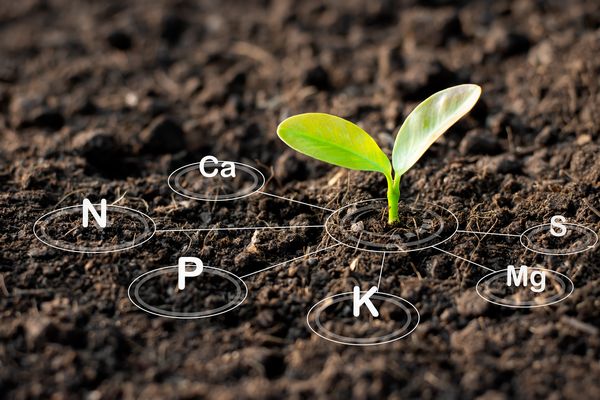
The Effects of Gypsum as a Soil Conditioner and Fertilizer
Gypsum, a naturally occurring mineral composed of calcium sulfate dihydrate (CaSO₄·2H₂O), is widely recognized for its role in agriculture as both a soil conditioner and a source of essential nutrients. Its application can significantly enhance the physical properties of soil, promote plant growth, and provide critical nutrients such as calcium and sulfur. This article explores the diverse benefits of gypsum, focusing on its impacts as a soil conditioner and fertilizer.
Improving Soil Physical Properties with Gypsum
Soil structure plays a crucial role in determining water retention, aeration, and root development. Gypsum acts as a powerful soil conditioner, addressing structural challenges and enhancing the soil’s overall health. Here are some key ways in which gypsum improves soil physical properties:
Prevention of Surface Crusting and Pore Clogging
When clay particles in soil bind tightly together, they create a crust on the surface that hinders water infiltration and gas exchange. Gypsum promotes the aggregation of clay particles, reducing surface crusting and preventing the clogging of soil pores. This leads to improved soil porosity, enabling water and air to move more freely through the soil profile.Increased Seed Germination Rates
By improving soil structure, gypsum creates a more favorable environment for seeds to germinate. Looser, well-aggregated soils allow seeds to access water and oxygen more easily, leading to higher germination rates.Enhanced Rooting
Roots thrive in well-structured soils. Gypsum reduces soil compaction and improves aggregation, enabling roots to penetrate deeper and access nutrients and water more effectively. This results in healthier, more robust plants.Reduced Erosion and Runoff
The improved water penetration associated with gypsum application minimizes surface runoff and erosion. By enabling water to infiltrate the soil more efficiently, gypsum reduces the risk of nutrient loss and helps preserve soil integrity.Increased Water Availability
Gypsum enhances water retention in the lower layers of soil, making more moisture available to plants. This is especially beneficial in arid regions or during periods of drought, as it helps sustain crops through prolonged dry spells.Improved Oxygen Exchange
Aeration is vital for root respiration and microbial activity. Gypsum improves the exchange of oxygen between the soil and the atmosphere, creating an optimal environment for plant growth and soil life.
Gypsum as a Fertilizer: Nutritional Benefits
In addition to its physical effects on soil, gypsum is a valuable source of essential nutrients, particularly calcium and sulfur. These nutrients are crucial for various plant physiological processes, and their availability can significantly influence crop yields and quality.
Calcium Source
Calcium is vital for cell wall strength and root development. Gypsum provides a readily available form of calcium, making it an excellent choice for crops with high calcium requirements, such as peanuts, tomatoes, wheat, corn, and citrus.Sulfur Source
Sulfur is a key component of amino acids, proteins, and enzymes. Gypsum supplies sulfur in a sulfate form that plants can readily absorb, supporting essential metabolic functions and boosting overall plant health.Increased Seed Yield in Rice
Research has demonstrated that applying gypsum to rice fields can increase seed yield by up to 21%. This remarkable improvement is attributed to gypsum’s ability to enhance soil structure and nutrient availability.Reduced Plant Diseases
In organic farming systems, gypsum application has been linked to a decrease in plant diseases. This benefit may result from improved soil health and enhanced nutrient availability, which strengthen plants’ natural defenses.Enhanced Nitrogen Content in Organic Farming
When used in organic farming, gypsum has been shown to increase the total nitrogen content of fruits compared to organic farming systems without gypsum. This boost in nitrogen content can improve the nutritional value and marketability of produce.
Synergistic Benefits of Gypsum
Gypsum’s dual role as a soil conditioner and fertilizer makes it a versatile tool for improving soil health and crop productivity. Its benefits are particularly pronounced in challenging soil conditions, such as compacted soils, clay-rich soils, and sodic soils. Moreover, gypsum’s ability to provide calcium and sulfur makes it a valuable addition to conventional and organic farming systems alike.
Best Practices for Gypsum Application
While gypsum offers numerous benefits, its application should be tailored to specific soil and crop needs. Conducting a soil test is essential to determine the appropriate rate and frequency of application. Over-application of gypsum can lead to nutrient imbalances and other unintended consequences.
For maximum effectiveness, gypsum should be incorporated into soil as part of a comprehensive soil management plan. This may include combining gypsum with other amendments, such as compost or organic fertilizers, to address multiple aspects of soil fertility and structure.
Conclusion
Gypsum is a powerful ally for farmers seeking to improve soil health and boost crop productivity. As a soil conditioner, it enhances physical properties such as structure, water infiltration, and aeration. As a fertilizer, it provides essential nutrients like calcium and sulfur, supporting robust plant growth and higher yields. Whether addressing specific soil challenges or enhancing overall fertility, gypsum is an indispensable tool in sustainable agriculture. By leveraging its benefits strategically, farmers can create healthier soils, stronger plants, and more productive farming systems.

